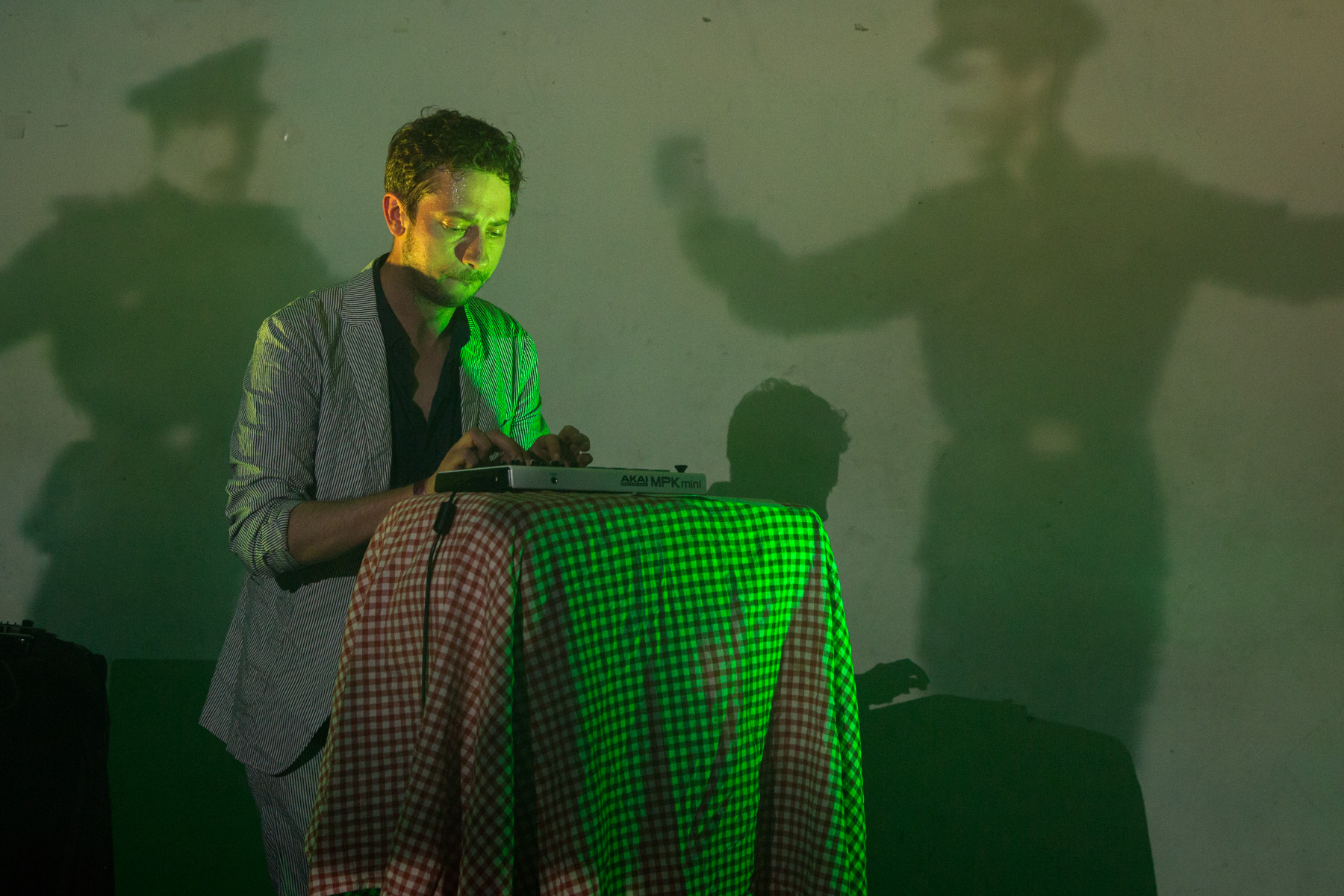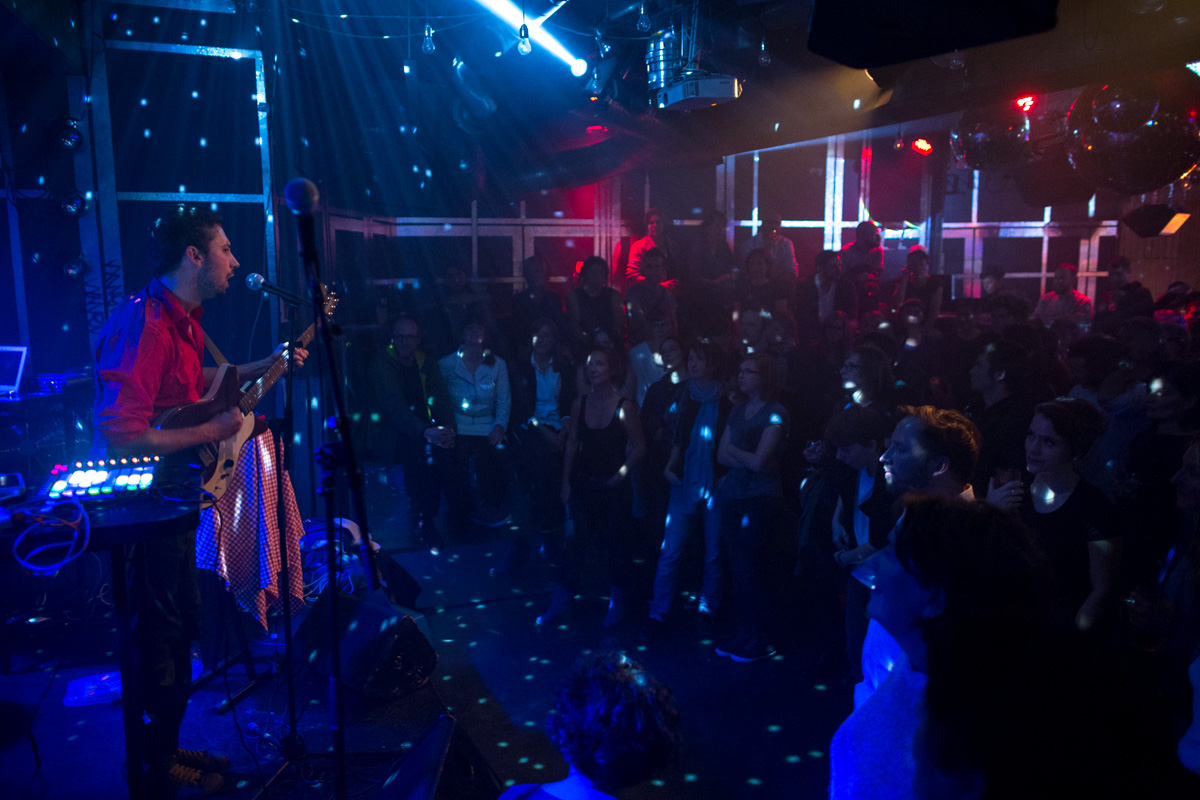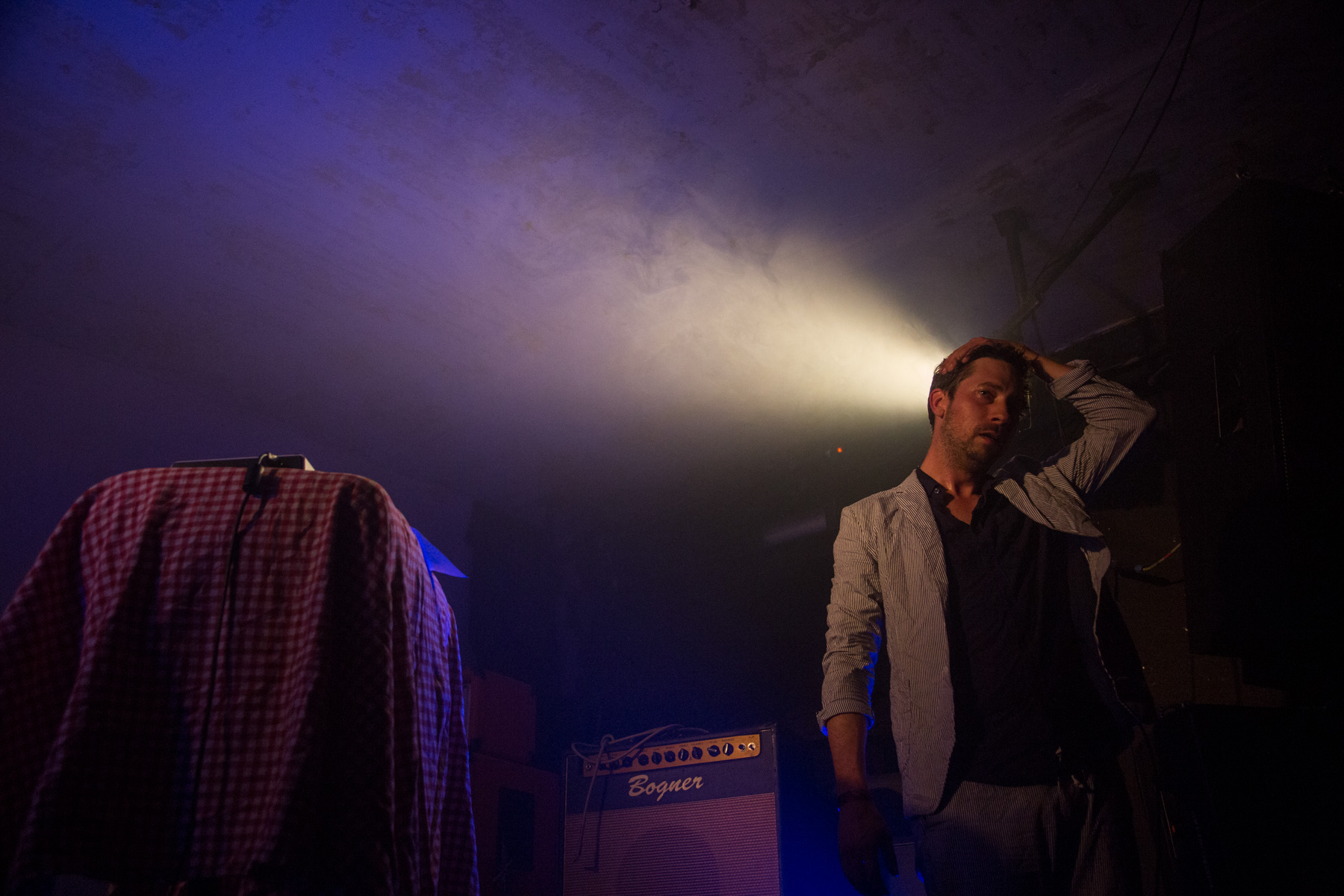EN

The eclectic Belgian musician Manu Louis defies genres, but that won’t stop us from trying to define him. He studied with the legendary pianist Fréderic Rzewski, but soon turned to bouncy electro pop. Using synthesisers and loops, he has released three albums that vary between languid cocktail landscapes and jazzy fever dreams — al this without abandoning his classical training, occasionally composing chamber music. He's coming to Porto to present his latest album, ‘Club Copy’, at Socorro. We sat down for a conversation on cities stubborn enough for weirdness to flower. At the end of the interview, we’ll be premiering Manu Louis’ new videoclip, directed by Ruben Marin.
Agenda Porto: When you describe “Club Copy”, a strong line you use is the standardization we're seeing in urban life in cities. In what way did this enter into the composition?
Manu Louis: Lyrically-wise, it's all based on that. And the more you travel, the more you're aware of how everything starts to look the same everywhere — not only in Europe, but also in the rest of the world. It’s depressing.
AP: And you're on a privileged position to take stock of this because you belong to three very different European worlds: you’re originally from Brussels, you live in Berlin, and spend a lot of time in Valencia.
ML: Yeah, even though food and language gives a surface-level distinction between these three, at some point you find a street with the same shops, the same people wearing the same clothes, all listening to the same music. Fortunately, in the three cities you mentioned, subculture has saved them. You find these little oases of weirdness — much like in Porto, another very lively city for that. When people resist and try to invent other things that are not the model imposed by big tech companies, for me that’s when I find a little bit of human life left.

© Dario Laganà
AP: That deviation from the norm is something that is a bit implicit in subcultures and niche cultures. But do you see a way out for the mainstream culture to avoid that trap of becoming homogenous?
ML: I think the scale of markets destroy that hope at some point. The more these agents are trying to make their enterprises gigantic, the less space you have left for bizarre or unclear thoughts or feelings. It's not in the ADN of big markets to generate anything soulful. That being said, there is a lot of current commercial music that, compared with what was made 15 years ago, I like far better. It’s more inventive. Rosalia, for example, is so refreshing compared to the rock bands of the 90s. James Blake — even though he’s got this horrible sentimentality that makes me vomit a little bit — musically speaking, he's very inventive.

© Dario Laganà
AP: You've got some experience with Porto already, having played here three times. Have you felt like the city has struggled successfully with resisting homogenization?
ML: There's the aspect of tourism. Just like in Valencia and Berlin, where tourism has driven rents high like crazy — but i think in Porto it went even faster, from what I understand. However, there is just something special in Portugal which i cannot find anywhere else in Europe. In most of the other countries, people have this weird ambition that they feel like they have to develop whatever they do, that things have to grow infinitely. But in Portugal, it always felt to me like in small restaurants and small bars people had less of this ambition of growing — their only ambition would be that the food or service stays as good as it’s always been. Whereas if you just focus on growing and optimizing, things will never be of the previous quality. I think Portugal has been less impacted by this capitalist ambition than other countries in Europe.
AP: Does that translate to the music scene?
ML: I'm really impressed by the music scene and by the music organization, especially in North Portugal. There's this crazy amount of small organizations that organize concerts of very adventurous music, young people that do this out of passion, and not with a profit incentive. It's really impressive because you don't find that in Spain at all. Sonoscopia in Porto or gnration in Braga are just two examples of that.
AP: Speaking of Spain, as a quick aside, how is the situation with the aftermath of the floods?
ML: There's a lot of solidarity, a lot. Everybody came to help cleaning, make food or transport things. There are a lot of problems with the way the authorities are managing the crisis. But the people really did massive work helping each other, that was beautiful to see.
AP: And what can we expect from your show in Porto?
ML: I’ll be bringing the projections, the visuals. It’s mostly going to be about “Club Copy”, but I'm writing quite fast at the moment — I write like one new song per week — and I will have three if not four new songs, the makings of a new album likely to be finished this winter. This time around I'm trying to play the songs live before I record them, because I want the song to live a little bit before it turns into a record.
AP: That’s curious. You’ve never played unrealeased songs live before now?
ML: I've done that a lot with my previous band, Funk Sinatra, so it’s not new. But with the electronic the solo stuff I'm doing I've never played unreleased tracks live.

© Dario Laganà
AP: Do you think that playing the next album live will influence the final form it will take?
ML: It definitely will. I mean, I'm already playing three songs live, and that already changed their structure based on how I felt the song worked live. It's a really different perception to have the audience being there and sort of giving you direct feedback on the song. It's just the way you feel the structure lives, it reveals things about the song: when you're too long or too short, or when you haven't said enough.
by Ricardo Alves
Share
FB
X
WA
LINK
Relacionados


